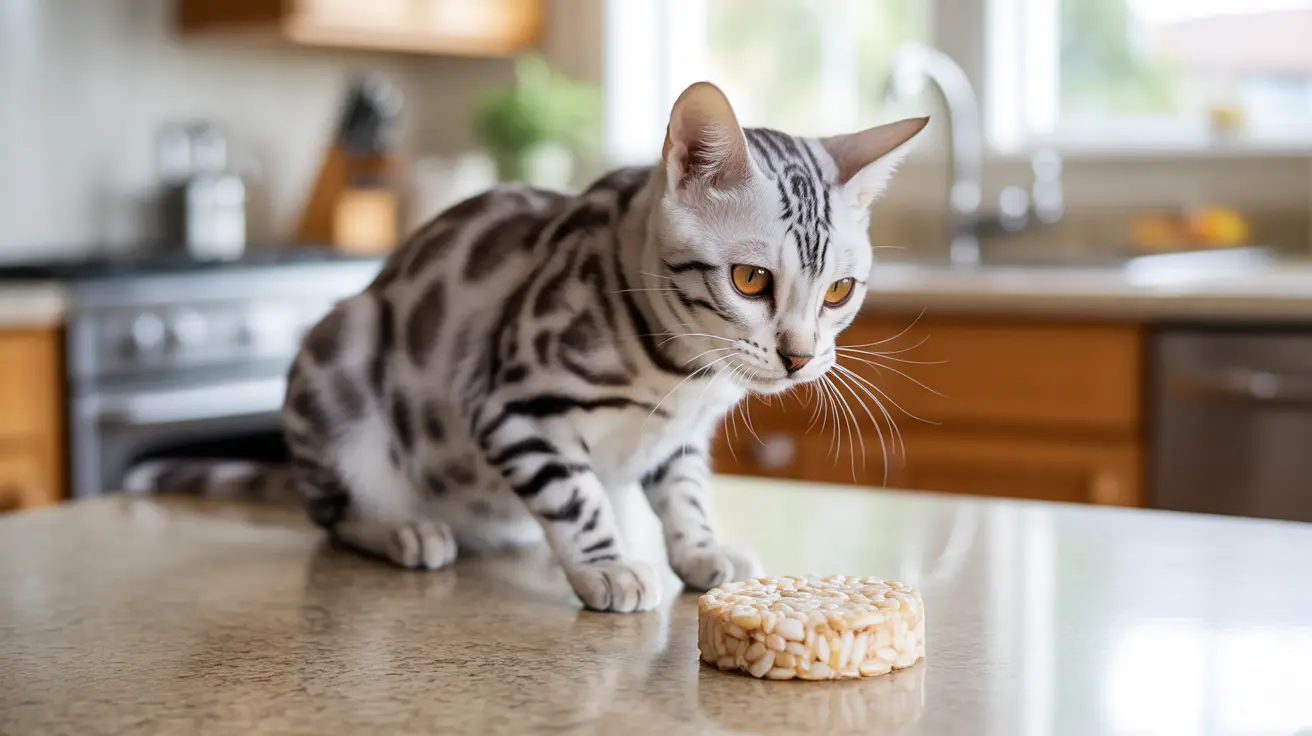If you've ever caught your cat eyeing your rice cake snack, you might wonder whether sharing a bite is safe. While cats are naturally curious about human foods, including rice cakes, it's essential to understand the implications of feeding these crunchy snacks to your feline friend.
In this comprehensive guide, we'll explore whether rice cakes are safe for cats, their potential risks, and what you need to know before considering them as an occasional treat for your pet.
Understanding Rice Cakes and Feline Nutrition
Rice cakes are made primarily from puffed rice that's been pressed together and heated until it forms a cake-like shape. While these simple ingredients might seem harmless, cats are obligate carnivores with specific dietary needs that rice cakes simply cannot fulfill.
As meat-dependent animals, cats require a diet rich in animal proteins, essential amino acids like taurine, and specific vitamins that can only be found in animal tissue. Rice cakes, being plant-based, offer virtually no nutritional value for your feline companion.
Safety Concerns and Potential Risks
Plain Rice Cakes
While plain rice cakes aren't toxic to cats, they can present several concerns:
- Choking hazards due to their dry, crumbly texture
- Digestive issues from excessive carbohydrates
- Potential dental problems from their hard structure
- Risk of obesity if fed regularly
Flavored Varieties
Flavored rice cakes pose additional risks:
- Salt content can lead to sodium poisoning
- Artificial sweeteners may be toxic
- Seasonings could cause digestive upset
- Chocolate or other harmful additives might be present
Impact on Feline Digestive Health
Cats' digestive systems aren't designed to process large amounts of carbohydrates. Feeding rice cakes to your cat can result in:
- Gastrointestinal discomfort
- Bloating and gas
- Constipation or diarrhea
- Decreased appetite for proper cat food
Healthier Alternatives to Rice Cakes
Instead of rice cakes, consider these cat-appropriate treats:
- Commercial cat treats formulated for feline nutrition
- Small pieces of cooked, plain meat
- Freeze-dried meat treats
- Veterinarian-approved dental treats
Frequently Asked Questions
Are plain rice cakes safe for cats to eat as occasional treats?
While plain rice cakes aren't toxic, they're not recommended as treats due to their lack of nutritional value and potential digestive issues.
What health risks can rice cakes pose to cats if fed regularly?
Regular consumption of rice cakes can lead to obesity, digestive problems, and poor nutrition since cats may fill up on empty carbohydrates instead of their proper diet.
Why do rice cakes provide no nutritional benefits for cats?
As obligate carnivores, cats require animal-based proteins and nutrients. Rice cakes are plant-based and lack the essential nutrients cats need for proper health.
Can flavored or salted rice cakes harm my cat?
Yes, flavored or salted rice cakes can be dangerous due to harmful additives, excess sodium, and potentially toxic ingredients like artificial sweeteners or seasonings.
What are healthier treat alternatives to rice cakes for cats?
Better alternatives include commercial cat treats, small pieces of cooked meat, freeze-dried meat treats, or veterinarian-approved dental treats specifically formulated for cats.
Conclusion
While rice cakes aren't immediately toxic to cats, they offer no nutritional benefits and could potentially cause health issues. Instead of sharing your rice cakes, stick to treats specifically formulated for feline health and nutrition. Always consult with your veterinarian about appropriate treats for your cat's individual needs and health status.






